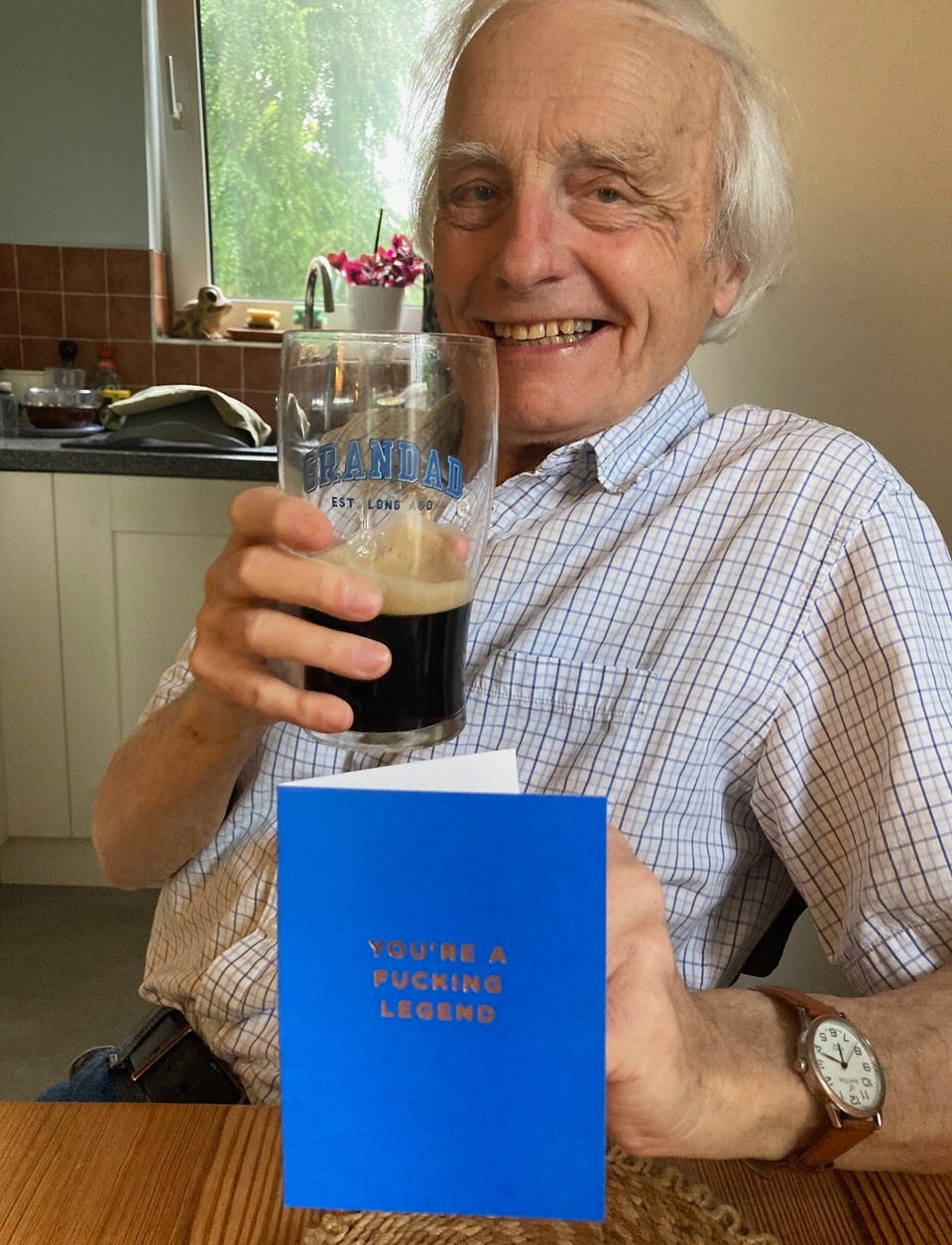I’d like to pass on to you the best story I’ve heard in the last year.
But I need to set it up first.
Leigh and I had gone into Steve’s Cafe for lunch. Our friend Phil Wright was in there. Phil eats in Steve’s Cafe a lot, but he also cycles a lot, so the two things balance out. Phil has a cyclist’s slim physique and gives off a general air of just being back from somewhere a bit hilly — though more likely Crystal Palace than Alpe d’Huez.
Phil is an actor. He’ll tell you his career has been through various phases. For a while, he played policemen. Then he played nice but sexy dads. Or sexy but nice dads. Then he played racists and homophobes. Most recently, he got a regular gig playing a homophobic/racist copper in Eastenders.
A few years ago, Phil and I shared a very minor claim to fame. We had been standing outside his house, having a chat, when the Google Street View car went past. For eighteen months afterwards, we were still there, having a chat, at that precise geolocation.
Leigh asked about Phil’s family. He was happy to answer.
Phil’s son is Fred Wright, a top professional cyclist. He’s the National Road Race Champion, and has ridden the Tour de France three times for Team Bahrain Victorious.

As our food arrived, Phil told us what had been happening with Fred.
After his season was brought to an early end by injury, he spent a week back home with Phil and his mum, Becca. Fred and Phil had lunch in Steve’s. They went to the velodrome, where Fred’s career began, and where Phil commentates with fond sarcasm on the weekly track races. They paid a visit to Phil’s dad, Fred’s grandfather. They went for several gentle training rides out through Kent.
Phil described all this to us with huge delight and pride. He was telling us his good story.
Towards the end of the week, when they were halfway through a training ride, Phil felt moved to speak to Fred. He slowed down a bit.
‘Look, I know Grandad repeats himself a bit these days. He’s sharp, but, you know, he does say the same thing sometimes. But I think you should understand — if Grandad says something to you more than once, it’s because it’s really important to him.’
As they freewheeled along, Fred started laughing.
‘Why are you laughing?’ Phil asked.
Fred said, ‘You told me that yesterday, Dad.’
Now, I hope you agree, this is a great story. Particularly when told by Phil. However, from my side of things, it’s not a good story — meaning a usable story. And that’s because it’s too obviously great story-ish.
In Steve’s Cafe, or down the pub, it rules. It’s got warmth, depth, a wonderful punchline. But I can’t see it as a short story or even as fitting in to a novel. It’s too standalone.
And so, with Phil’s permission (he’s a long-time reader of the diary), I’ve shared his story with you now.
Because I can’t think what else do with it.
Most writers have many many stories like this that fall into their laps. Some, like me, write them down in notebooks or diaries. But it can often be story ideas that seem completely ungreat that are the germ of something writeable.
I love what Harold Pinter says about this, because it gives a real sense of the poverty and ungreatness from which a good story can start. Was any writer ever was more brutally deadpan than this?
The germ of my plays? I’ll be as accurate as I can about that. I went into a room and saw one person standing up and one person sitting down, and a few weeks later I wrote The Room. I went into another room and saw two people sitting down, and a few years later I wrote The Birthday Party. I looked through a door into a third room, and saw two people standing up and I wrote The Caretaker.
This is from ‘Writing for Myself’, published in The Twentieth Century, February 1961.
I hope I haven’t told you this already.
Here’s Phil’s Dad —





Love this. Not a story on its own… but couldn’t it be a lovely bit of side action to a different story? You could just show the character (Phil) saying it twice, a few scenes apart. Could be very touching and funny.
This is BRILLIANT